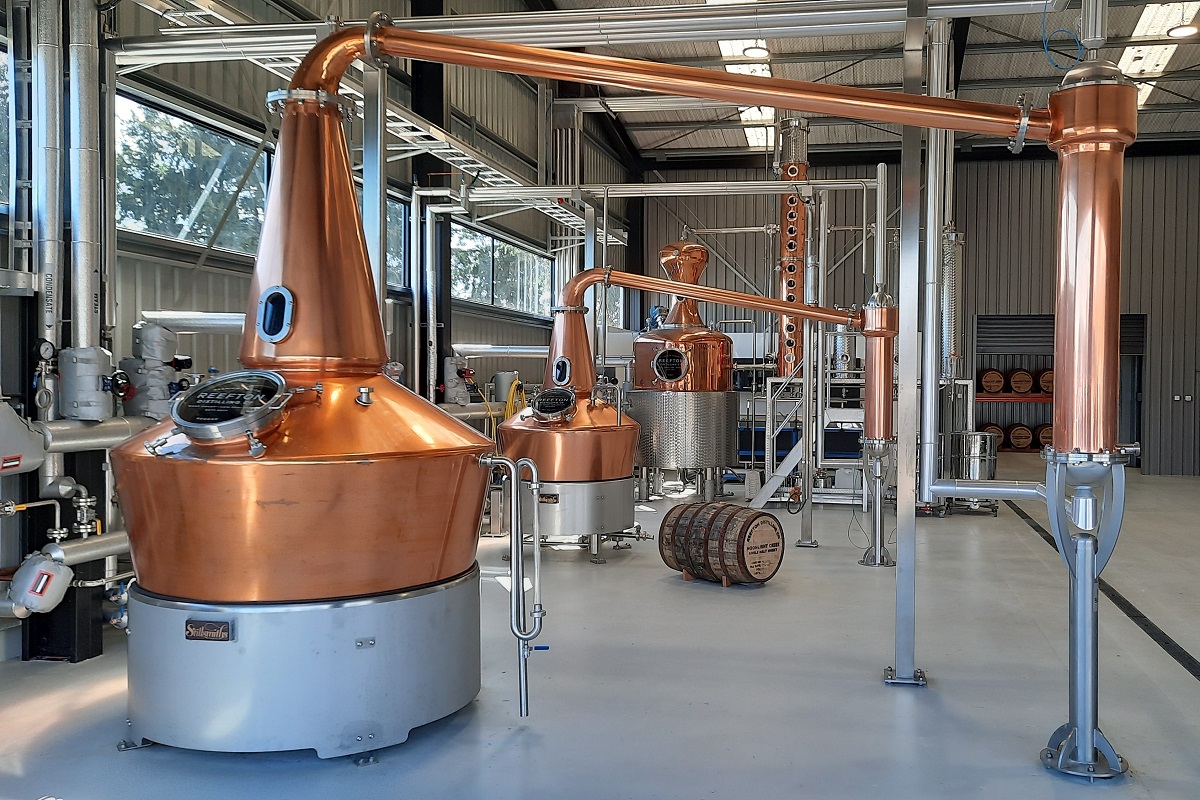Recently achieving B Corp certification, New Zealand’s Reefton Distilling Co has a strong focus on sustainability and environmental responsibility, driven by its proximity to an expansive and abundant natural forest.
Located in Victoria Forest Park on New Zealand’s West Coast, an area with more than 2000 square kilometres of Indigenous forestland, the environment that the distillery strives to protect is close to home. Reefton Distilling Co’s Founder and Chief Executive, Patsy Bass, explained what makes the area so special.
“The West Coast rainforest is like nowhere else on earth, a lush green wilderness, with large swathes of beech forests set amid a mountainous landscape. Our location provided everything that we needed to create our premium award-winning spirits, native forests full of botanicals, and some of the purest water on earth in abundance.
“Living and working in this stunningly beautiful, pristine environment, actively reducing our demand on the planet was something that we wanted to enshrine into our operating model from the very beginning,” she said.
Water is a particularly precious resource to conserve, as it makes a significant impact on Reefton Distilling Co’s products.
“One of the West Coast’s best-known regional characteristics is its abundant rainfall, the rain filters down through the mountains, untouched for decades, finally emerging as some of the world’s most pristine water. These pristine water sources are one of the key ingredients in Reefton Distilling Co.’s range of premium distilled spirits, but we take only what we need,” Bass said.
The distillery’s first steps towards sustainability began with repurposing existing buildings, rather than building a new, custom-built distillery.
“We wanted to position the distillery in Reefton to help revitalise the town, and our cellar door is housed in one of the original commercial buildings, built in 1870, in the heart of this historic town. The building was restored and fitted out to suit our needs, and now houses our tasting lounge and retail operation. We used repurposed materials in the fit out, and we sourced supplies and services from Reefton and the West Coast where possible,” Bass said.
In 2020, due to expansion requirements, Reefton Distilling Co. purchased a 1.6ha site with existing buildings. The site was refitted with sustainable equipment, such as a bio-diesel boiler, and many byproducts are reused or recycled onsite.
“Significant investment in a closed loop cooling system to reuse water saves hundreds of thousands, if not millions, of litres per year going to waste. The minimal wastewater created is used to irrigate our own and neighbouring farmland, the spent grain from whisky production is used to feed the local farmers cows, and we compost all botanicals from our distilling process,” Bass said.
Although these major initiatives are important for the distillery’s sustainability initiatives, for Bass, the little changes also make an impact.
“Every bottle is hand labelled, and we save the label backing paper and drop it back to the supplier who recycles it,” she said.
The search for more eco-friendly solutions is ongoing. Bass described how this pursuit for best practice led to a recent shift in the packaging used onsite.
“Until we can secure plant-based pallet wrap in NZ, we needed to use plastic wrap to safely move product around our site and for bulk dispatch. Each time we opened a pallet to restock our Cellar Door, online store and events team, we were uncomfortable with the waste. Searching for a solution, we came across pallet nets. These nets are an easy reuseable solution and will greatly reduce waste to landfill each year,” she said.
As well as a commitment to the environment, Reefton Distilling has a strong commitment to supporting the local community, and actively creates local jobs, engages local businesses, and brings attention to the beautiful Reefton town and surrounds.
“This business is not just about whisky and gin, it’s about helping to regenerate a town, providing jobs for the next generation, so that they might have a future on the Coast, stay here, raise their own families, keeping the community alive and vibrant. It’s also about attracting new people to the region,” Bass said.
This deep connection to place resonates strongly with consumers.
“The provenance and story behind our products have played a large part in positioning our brands and this in turn has helped to highlight Reefton, the region, grow tourist numbers and in so doing have a flow on effect for the town and wider economy,” Bass said.
Bass is confident that sustainability will become more and more important to New Zealand distillers, and that others are already instituting their own sustainable initiatives.
“The distilling industry in New Zealand is relatively new, and we all support each other as much as we can. We see other distilleries following a similar path and putting their efforts into creating a sustainable industry, this shows that you can operate sustainably, protect the environment, and produce high quality spirits.”

